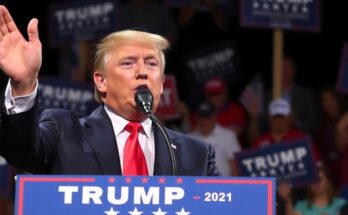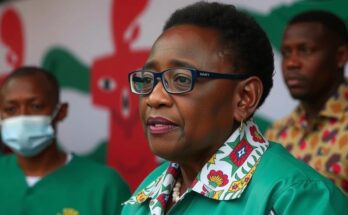The upcoming special elections in Virginia’s Loudoun County are poised to serve as an early gauge of Democratic enthusiasm in the aftermath of Donald Trump’s electoral victory, amid concerns of waning motivation within the Democratic base. As pivotal races for the state legislature unfold, the results could signal not only local political trends but also broader implications for future electoral dynamics in Virginia and beyond.
As Democrats seek to energize their sluggish voting base, two critical special elections in Virginia’s Loudoun County will provide an early indication of partisan enthusiasm in the wake of Donald J. Trump’s return to prominence. These contests for the Virginia legislature, set for January 7, will gauge how much Democratic enthusiasm has waned since Trump’s recent electoral victory. Eight years earlier, Trump’s unexpected win had spurred vigorous Democratic campaigning; however, today’s environment appears markedly different.
The Loudoun County elections occur against a backdrop of significant party shifts, reflecting a stark contrast to the energized Democratic resistance witnessed following Trump’s initial election. Candidates Kannan Srinivasan and JJ Singh represent the Democratic push to maintain critical legislative seats amidst concerns that decreased voter engagement might permit Republican competitors Tumay Harding and Ram Venkatachalam to capitalize on this opportunity. The legislative stakes are high, as Republican wins could lead to power-sharing agreements and legislative gridlock.
The recent trend in Virginia, particularly in Loudoun, has been a notable shift towards the Republican side even in traditionally Democratic regions, raising alarm among party strategists. Dan Helmer, the campaign chair for the Virginia House Democratic caucus, acknowledged the evolving landscape: “We know that people are tired, and we know it’s going to take inspirational candidates to hold these seats.” The shift in demographics, with heavily Asian American populations in these districts, introduces additional layers to candidate strategies, positioning issues such as educational funding and public health at the forefront of their platforms.
Ultimately, these elections will serve as not merely a local measure of enthusiasm but as a mirror reflecting the national political temperature as Republicans, emboldened by recent gains, attempt to solidify their foothold in Virginia against the Democratic backdrop that had previously dominated. The implications of the outcomes will ripple across future legislative agendas and national political strategies in the ongoing Trump era, warranting close observation by political analysts and officials alike.
The article centers on the upcoming special elections in Virginia’s Loudoun County, which are significant due to their timing—occurring soon after Donald Trump’s victory, presenting insight into Democrats’ continuing momentum or their potential loss of energy. These elections are critical for the Democratic Party to maintain control of their state legislature as they face renewed competition from Republican candidates. The changing political landscape in Virginia serves as a bellwether for future elections in the region and possibly across the nation, particularly regarding shifts in voter engagement and sentiment post-Trump’s election.
In summary, the Loudoun County special elections will be key to assessing the current state of Democratic enthusiasm in the Trump 2.0 era. With the backdrop of decreased fundraising and voter engagement, the results will not only dictate control of Virginia’s legislative chambers but also serve as a reflection of broader national trends in political engagement. The outcomes will have significant implications for ongoing legislative battles and the future direction of both parties.
Original Source: www.nytimes.com




